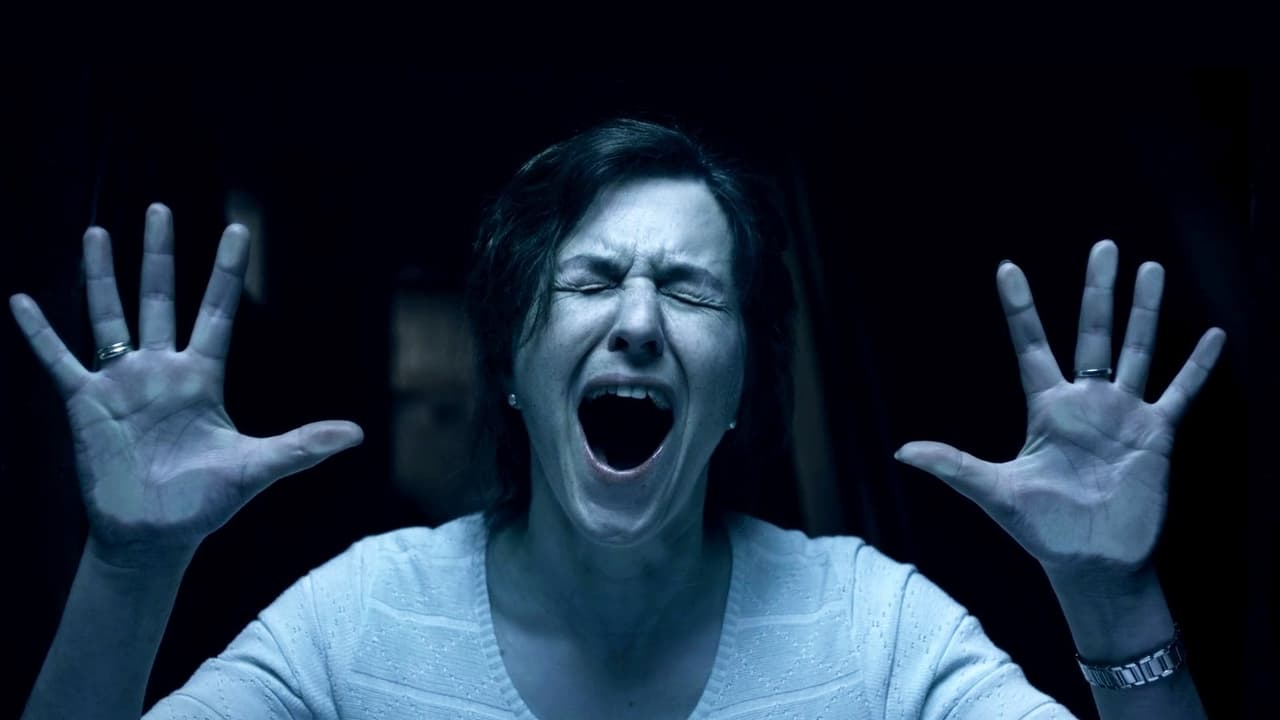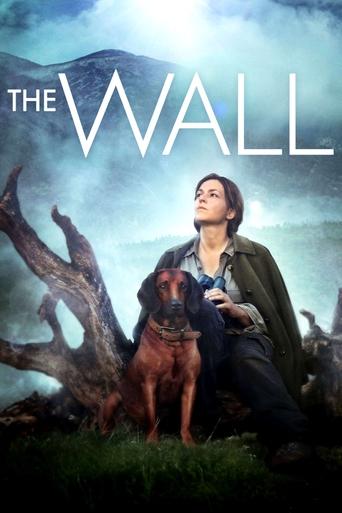

This is the synopsis from Netflix: "Vacationing with a couple in their mountain retreat, a woman finds herself alone at the cabin one afternoon, inexplicably trapped by an invisible wall. Her isolation behind the barrier grows more surreal as hours, then days, then weeks pass." Sounds like a cool premise, right? I mean, how is she going to get out? I mean, she's going to spend most of the movie figuring out the nature of this wall and then trying to escape it, right? When she first encounters the wall, she's on a path. Next to the path is a river, where water is clearly flowing through the wall – wouldn't you, I don't know, try to swim in the water to see if you could get under the wall? Throw rocks at it to try to see how high it goes (it does seem like birds are able to cross in and out of the wall and rain, snow and wind still exist, so it's not like a dome). If you happen to see someone two years after this journey, wouldn't you maybe try to talk to him to see where he came from (even if he just killed your dog) instead of just murdering him? You and I probably would because we are not vehicles for philosophy. "The woman," however, exists solely as a vehicle for philosophy, so nothing she does makes any sense. She's too busy contemplating her aloneness than to try to do anything about it. So we, the viewers of this beautifully shot movie (it really is gorgeous!), must suffer through her loneliness with her rather than see her try to do ANYTHING about it. She never digs a hole on the border of the wall to see how deep it goes. Instead she spends 10 days waiting to be rescued and then just accepts her fate. And that happens about 10-15 minutes into the movie, so get ready to philosophize!
... View MoreTHE WALL has a classic B-movie plot - a woman in rural Austria finds herself trapped behind an invisible wall with nothing but a dog for company - but, instead of making it a survival story, it uses it as the jumping off point for a slow, philosophical Euro movie. It's basically a one-woman show for Martina Gedeck, who carries this adaptation of the classic 1960s Austrian novel beautifully, with some assistance from the gorgeous Salzkammergut scenery. There's lots on the sheer isolation, lots on the relationship between man and beast, and a certain amount of symbolism but the film never goes overboard (although the appearance of someone later on suggests at least one rather weak feminist interpretation) and has an open ending.
... View MoreI enjoyed this movie but I am glad it ended when it did because it had exhausted its theme. It is really a reflection on how we can only regain our humanity if we get back to nature, as the protagonist does perforce because of the inexplicable appearance of the wall. It's beautifully acted, directed and filmed, with some lovely Bach - which seems to be there just to add lyricism and melancholy, but it's still welcome. Be warned - the appearance of The Wall is never explained and there is no resolution. Our heroine just decides that being now At One with nature, she may as well go on living. Lovely Salzkammergut scenery. In fact, it's really The Sound of Music but without the songs, the Nazis and the nuns. Instead of which there are a great dog, a cow and two cats, plus our heroine and a whole load of angst. Sound a bit odd? Well, the Germans and Austrians do have this big thing about nature ...Update: I have just given the movie a second viewing and while the mystery of what is going on remains, I was even more impressed than first time around by the cinematography, which is really alpha plus. So I have upped my original 7 to 8
... View MoreMovies are art, some good & some bad. This abstract movie is bad art in my opinion & it's more like a Yoko Ono, Jackson Pollock, or poop on a canvas as opposed to a John Lennon, Salvador Dalí, or art done with some skill. To the average person this movie is just a lame medium-high budget movie with no beginning or end. The smug artsy-fartsy crowd like this movie because it strokes the ego to know it has a hidden meaning, but the hidden meaning of this film does not uplift mankind like a They Live (1988). It has the same lame, apathetic, give up & go along hidden meaning of the junk film Larry Crowne (2011). Symbolism explained: Apathetic woman doesn't want to know why she is trapped in a big bubble so she keeps the animals she finds around her in a little bubble to give her inauthentic life meaning, the end. "How you like them apples."
... View More